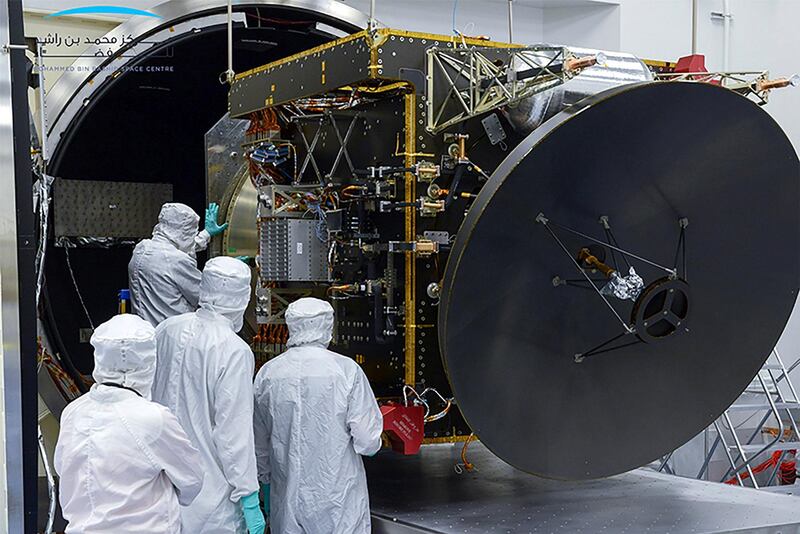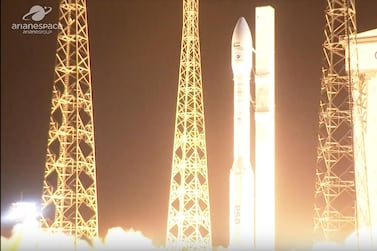The one-year countdown has begun to the UAE’s landmark mission to Mars.
Hope, the UAE’s probe, will blast off for the Red Planet in mid-July next year from Tanegashima Space Centre in Japan. It will take seven to nine months to reach Mars.
The UAE Space Agency and the Mohammed bin Rashid Space Centre marked the countdown on Tuesday.
Ahmad Al Falasi, chairman of the UAE Space Agency, said the final preparations are now being made.
“The Hope Probe will be a milestone in the UAE’s record of achievements,” he said.
“It is a confirmation to the whole world that the UAE has entered the global space exploration race and is determined to hold a leading position among the developed countries in this difficult and complex field.
"Only countries with people armed with science, ambition, a spirit of challenge and achievement can enter this field.
The launch window is the time during which the Hope Probe must be sent as Earth and Mars are set to be at their closest point. This only happens once every two years.
The Emirates Mars Mission is the first by any Arab or Muslim majority country and comes in the same year the UAE celebrates its 50th birthday.
A team of Emirati scientists, in collaboration with experts from the US, are designing and building it.
Hope is currently undergoing a battery of environmental tests in advance of the launch to assess its readiness for launch. These five tests will conclude in December and include vacuum, shock and temperature tests. During the temperature tests, for example, the probe will be exposed to a series of temperatures ranging from -148°C to 102°C.
Hamad Al Mansoori, chairman of MBRSC, said the data collected by Hope will prove invaluable for future generations.
“The Emirates Mars Mission – Hope Probe has already contributed to creating new scientific disciplines for Emirati students," he said. "It also established the presence of space technology as one of the key elements of modern life in the UAE. Like other international space missions, Hope Probe will directly and indirectly contribute to the emergence of new discoveries."
Hope is expected to reach orbit around Mars in the first quarter of 2021 and it is expected to collect more than 1,000 gigabytes of data on the Red Planet.
The programme aims to collect information on Mars' meteorological layers and assess the Martian atmosphere.
There has only been a few dozen successful missions to Mars. Speaking to The National last October, the former head of Nasa said the UAE was helping humanity by sending the probe to Mars.
Charles Bolden, also a veteran of four space walks and a decorated fighter pilot, said it would help the world's understanding of the Martian atmosphere.
“You know how many nations have been successful in reaching Mars? Not very many,” he said. “It is a huge deal for us to have the Emirates Mars Mission reach Mars.”
There are currently two orbiters around the planet. Nasa studies the upper atmosphere with one, while India looks at the lower with another.
“Hope will look at the middle atmosphere and will complete the picture,” he said. “We could not do that alone.”
The MBRSC is responsible for the design, development and launch of Hope, while UAE Space Agency (UAESA) is funding and supervising the project.








